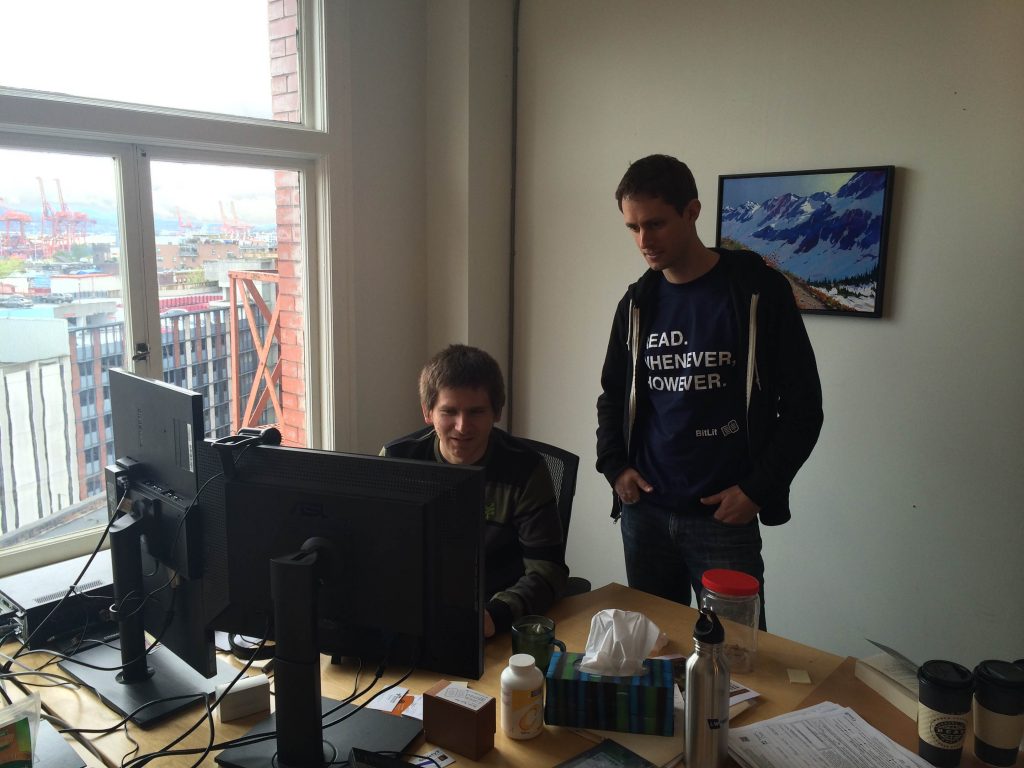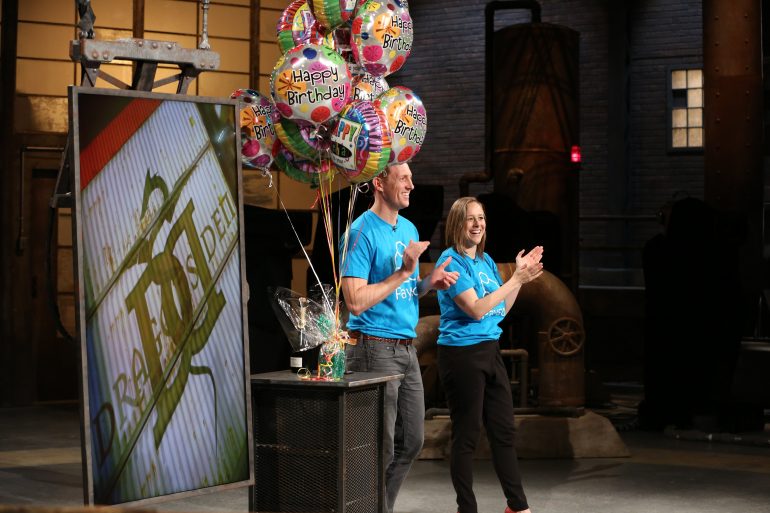Auditions for CBC’s Dragons’ Den TV show have begun again – and for tech startups from coast to coast, this can be a big opportunity. Many try to strike a deal and fail – and even for those that succeed, the devil is often in the details. It’s not uncommon for deals to fall through after air – in which case, perhaps the value of the show for many startups is in the pitch itself. After all, getting their product in front of a million viewers is no small thing. So, how to make the most of it? And how do you beat out the competition to get that prime-time action in the first place?
Engaging early could help your chances, noted Natalie Cartwright, co-founder of Vancouver-based FinTech startup Payso, whose pitch will hit your TV screen on March 9 (assuming you’ve got basic cable, Netflix fans).
“They’re turning an hour into five minutes. It’s about accentuating the essence of the person.”
“We reached out to the Dragons via friends through social media,” she explained. “We didn’t speak directly with them, but did try to get on their radar, responding to things they were saying on Twitter, so they would know about our product before we ever walked in. It’s not a hard sell. It’s about getting your name in front of them in a constructive way.”
For Payso, the value of the pitch was as a marketing channel, not an investment channel, since for FinTech in particular, cementing trust early on with consumers and potential financial partners is critical.
“Of course, with any exposure, there’s a downside risk,” Cartwright said. “You’re there for a long time and they’re creating a TV show, so you know they’re going to edit it to be as entertaining as possible. They’re turning an hour into five minutes. It’s about accentuating the essence of the person – and that’s what we were banking on. You have to pay attention to the story you’re putting out there. Pitching as a woman in FinTech was a strategic choice for us.”

Intentionally inserting some drama was also a strategic choice for Shelfie (formerly BitLit) co-founder Peter Hudson, who asked the Dragons for $125,000 for 5 percent of the company. When Shelfie got two competing offers from the Dragons, the planned method for generating that drama was for him to consult with his co-founder in the back room (still on TV, naturally) and to attempt to negotiate an even better deal on his return. In the end, the Dragons passed on the new terms – but Hudson was ready for that.
“Pitching on Dragons’ Den was actually a more friendly experience than pitches I’ve made at angel investor groups!”
“We’d heard that entrepreneurs on the show almost never throw a deal back, but we also knew that less than 10 percent of the handshake deals on the show actually result in a check, so there was little danger we’d actually be throwing away a ‘real’ investment,” Hudson said. “At the same time, we’d be giving the producers the drama they needed to make sure our episode made it to air.”
Hudson said he has no regrets at how it turned out – and seemed pleasantly surprised by one element of the experience. “Pitching on Dragons’ Den was actually a more friendly experience than pitches I’ve made at angel investor groups! For any entrepreneur wanting to pitch in the Den, I’d say do it – but know in advance what you want to walk out with.”
Tangoo CEO Paul Davidescu also came away with some positive entrepreneurial lessons learned from the experience – even if a deal around the company’s ‘pocket concierge’ app didn’t happen on the show (the company did get an offer, but it was too low – and Davidescu says they’re proud of standing their ground).
“We practiced the pitch for two months, with 6 am practices every Friday with one of our mentors, as well as in front of big groups,” Davidescu said. “We worked damn hard at that – and as part of the process, we worked at a furious rate to validate our product with customers and solve their problems. Knowing the pitch was coming made it that much more imperative for us to show how we were solving real problems.”
That motivation didn’t end after the pitch was over. “Knowing we were going to be in the spotlight in six months when the episode aired, it powered us to grow and raise money off the show. We expanded our web and mobile app across every Canadian city, doubled our team and kept pushing the limits, so when it came time for the viewing party, we’d be ready.”


